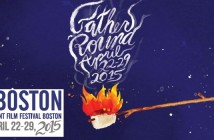Editor’s Notes: The following dispatch is part of our coverage of the Neuchâtel International Fantastic Film Festival. For more information visit nifff.ch and follow NIFFF on Twitter at @nifff.
In what might at first seem like an ill-suited choice for NIFFF’s thrill-heavy program, my first seance of this 14th edition of NIFFF is Charlie Lyne’s teen-flick documentary Beyond Clueless. Indeed, NIFFF’s home of the film fantastique doesn’t immediately strike as the most appropriate place for a project that aspires to cover both the esteemed pantheon of the teen film and its foulest, forgotten, depths. Yet as the final notes of Summer Camp’s fantastic soundtrack ring around the room, any doubts I may have had have been brushed aside. Lyne’s loosely-structured overview of the genre reveals many intersections between the fantastic/horror genres and American Pie’s family tree. These crossroads are most obvious in examples in which both genres are intertwined, as is the case in Idle Hands (1999), The Craft (1996) or Disturbing Behavior (1998). Yet there is something unquestionably nightmarish to be found in even the most conventional teen-flick, where high school serves as the hellish landscape, and adolescence the unfortunate curse.
To refer to Lyne’s film as a straight-forward documentary, however, would be a gross misrepresentation. Instead, it takes the shape of a long form video essay, a compilation and collage of clips from over two hundred films ranging from the mid 80s to this past decade. Talking heads are substituted for attractions-style montage that aspire to reveal the genre’s many tropes, while any clear and linear direction is replaced by very loose thematic chapters, the gist of which is narrated to us by The Craft star Fairuza Balk. While Lyne’s approach is undoubtedly interesting, it is in truth only sporadically enlightening. As engrossing as a collection of opening crane shots of the bubbling life of a first day at high school can be, it ultimately does little more than point out the cliché, as opposed to enriching it with meaning (the feat is repeated for sex scenes, pool scenes, masturbation scenes, hallway scenes, etc.). Beyond Clueless’s most valuable moments, however, take place when the film reverts from its frenetic associative montage segments to surprisingly in-depth commentaries on lesser-known titles, as is the case with Bubble Boy and the gleeful dissection of Eurotrip’s otherwise perfectly normative ending. Perhaps the most vital element Lyne brings to the table is an obvious affection for the genre’s losers, those high-concept flicks that serve as fodder for Mean Girls and Clueless’ high school royalty. I can honestly say that I have never been so enticed by the idea of visiting films so obviously, so brutally, bad than I have as I walked out of Beyond Clueless.
…it could be argued that iNumber Number takes a lot of its cues from shooters, down to the third person sprint cam with its blurry iris, it just forgets to be intelligent enough to engage its audience with any sort of intelligence.
Speaking of painfully bad films, allow me to suggest giving South-African thriller iNumber Number a miss and waiting for the projected American remake. Certainly I can think of few ways in which a retake à la sauce « Amuricah » could possibly worsen this baffling mess of a film. Ridiculous subtitles that continuously jump from one corner of the frame to another and garish title design aside, Donovan Marsh’s biggest fault lies in his wholehearted, yet frustratingly unironic, embrace of the cheesiest of dialogues and a plot that could conceivably have been thought-up by a hyperactive child. Buddy cops Chili and Shoes are at war with their cartoonishly corrupt hierarchy, who refuse to pay them for their bold takedowns of criminal operations. Hellbent on getting the money he feels they deserve, Chili greenlights a dangerous operation that requires him to go undercover for a highway heist, leading him to dismiss ethical conduct in favour of his indefatigable anger at being refused his salary. Chili’s inevitable return from the dark side involves threats to the life of his partner Shoes and that of a partially-innocent security guard. Every one of the film’s genuinely thrilling moments is immediately undermined by laughably generic twists and downright offensive use of slow-motion. That being said, two scenes require some sort of commendation. On both occasions, one cop is trapped in a tricky situation, and must resort to the eyes of his partner, whose position gives him the tactical advantage of a complete view of the situation. Marsh’s frenetic tendencies work well in these instances, the walkie-talkie back and forth a callback to the team-talk of modern first person shooters. In fact, it could be argued that iNumber Number takes a lot of its cues from shooters, down to the third person sprint cam with its blurry iris, it just forgets to be intelligent enough to engage its audience with any sort of intelligence.
Things look up once more with my first taste of the International Competition line-up: Director’s Fortnight Australian apocalypse-themed These Final Hours. With a projected twelve hours left to live, muscular party-guy James plans to make his way to what looks like Project X: Re-Perth to meet his girlfriend and « get fucked up », leaving his lover to face the world’s excruciating end alone in the process. That is until he saves little young Rose, an unsuspectedly tough-skinned girl determined to meet the end her father promised they would face hand in hand, from the clutches of two predatory men. Every attempt he then makes to get rid of his new pre-adolescent buddy is fettered by visions of death, destruction and violence. His beeline to the land of drum’n’bass’n’drugs’n’sex’n’anarchy suddenly looks more and more sinuous. Australia’s sun-kissed shores become a desolate landscape of graffitied goodbyes, burned homes and the hanging silhouettes against the skyline of those who took the easy way out. If Hilditch’s outlook is consistently manic and, at times, brutal, These Final Hours nevertheless refuses to give in entirely to cynicism, allowing James an emotional personal journey of redemption. Mixing dark humour, inevitable Mad Max leanings, touching drama and a rousing finale, These Final Hours is an exotic, and welcome, addition to a genre that often prefers to contemplate the desolate landscape and human condition of the event’s aftermath. Instead, James’ broxistential crisis makes for a concise trip down an equally global and personal death row.
Mixing dark humour, inevitable Mad Max leanings, touching drama and a rousing finale, These Final Hours is an exotic, and welcome, addition to a genre that often prefers to contemplate the desolate landscape and human condition of the event’s aftermath.
My opening day reaches its highest peak past midnight with Tommy Wirkola’s Dead Snow 2: Red Vs. Dead, the follow-up to nordic Nazi-themed chalet gore-fest Dead Snow. Five years ago, a group of medical students climbed up to an isolated cabin only to find themselves chased by bona fide Third Reich zombies in full attire after stumbling across a small chest filled with cursed nazi gold. For all its silliness and straight-up ripping off Evil Dead, Dead Snow nonetheless proved an effective little horror-comedy, its delightfully gory deaths undoubtedly overshadowing the bouts of tepid dialogue and otherwise generic plot structure (from Raimi’s finest to Cabin Fever by way of Cabin in the Woods). Let fans of the first rejoice, Dead Snow 2: Red Vs. Dead cranks everything way up and succeeds in eschewing its predecessors’ obvious ancestry and embrace the silliness on its own terms. Picking up seconds where the first film left off, we find one-armed lone-survivor Martin battling Herzog and his horde of zombies from the inside of his car. He succeeds by successfully ripping the former’s arm off before falling asleep at the wheel. Things take a turn for the worse when he discovers, upon waking up, that the doctors have mistook the undead Nazi commander’s right arm for his own and attached it to his body. Endowed with a will of its own, Martin struggles to control it as it lashes onto anybody that happens to be around, be it doctors, police officers and even, in one wonderfully distasteful scene, kids.
In order to overcome the infestation, Martin gets in touch with the Zombie Squad, a trio of homegrown American nerds (spear-headed by indie movies’ resident geek Martin Starr) whose life has been spent preparing for a zombie apocalypse from the comfort of their parents’ attic. Together, the foursome cook up a plan to create their own zombie army, and what better opponent to rival Hitler’s closest guard than their best enemies: zommies (get it?). I can barely count the amount of times the audience burst out laughing at the gleeful carnage of soviet and german undead locking horns in their battle of witlessness. Blood spurts out in generous streams; intestines are ripped out and, in one instance, given a deliciously vile new purpose; undead flesh is penetrated, perforated, and generally mistreated with infectious zeal. One particular zombie is put through such a viciously hard time that not even the repulsive sight of the bloody tissue that was once his face can keep him from being endearing. Much more than a straight-forward bloodbath, Dead Snow 2 is peppered with the kind of dark humour that propelled Evil Dead to cult status, only this time it doesn’t get bogged down by too obvious a connection to its spiritual father. What we have here, rather, is a contemporary landmark for comedy horror, a true masterclass in satisfying one’s audience.




